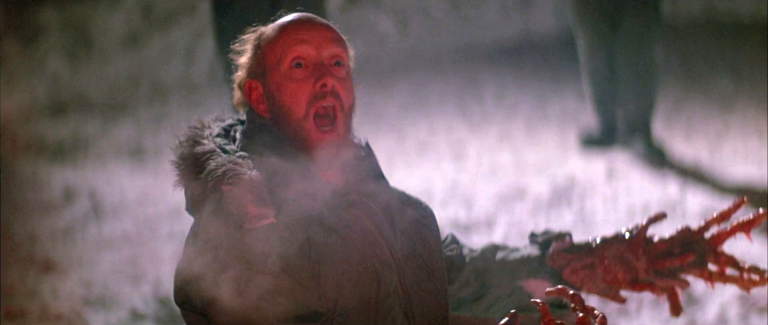
Here’s Why Crohn’s Disease Can Be Beautiful If You Want It To Be
Crohn’s Disease is not something you win against or something you beat. You can go into remission at times. You can make it through a flareup to the other side. You can have phases where you only have to see your doctor every few months instead of every couple of weeks. But Crohn’s is always there, hanging over you like an oppressive cloud. A cloud that you completely dread, but one that feels uncomfortably familiar at the same time.
That unsettling familiarity comes from the fact that Crohn’s is with you at all times, no matter how hard you work to control it. You can have the cleanest diet in the world and the strongest medicine possible for your body, but Crohn’s doesn’t ever fully go away. You can keep it at bay. You can feel better than you have in years. But it’s still always right there, ready to pounce at any moment.
It’s especially noticeable in the big moments, even if you feel that you’re at your healthiest. The minute you plan a vacation, or get on a plane, or are offered a new job, it slinks into the room as a dark shadow that cannot be ignored. You’re imagining every possible circumstance, wondering what you could possibly do if your body decides to act up. And the answer is usually: nothing.
And even in the not-so-big moments, when you’re trying to relax on a Saturday or are just showing up at work for another ‘ordinary’ day, it can show up. And it’s isolating and exhausting and nerve-wracking. You’re out of the moment – just counting down the hours until you can go home and lay in your bed, or spending your Saturday evening wracking your brain for what you could have possibly eaten that destroyed your stomach today.
But as loud as Crohn’s is to you, it’s a fairly quiet disease to everyone else. The symptoms aren’t stereotypically visible, besides – possibly – fatigue. Even if you have scars, or a bag, from a surgery, they’re mostly hidden, seen only by the people closest to you. That makes your situation hard to explain, hard to relate to, and hard to translate to a person who has a clean bill of health.
So when these things happen (mostly regularly), it’s tempting to let Crohn’s turn you into someone ugly. It’s frustrating when doctors ask you to rate your health on a scale of 1 to 10, because you can’t really remember what ‘normal’ is supposed to feel like; your ‘normal’ is not everyone else’s normal. So it feels good to get angry, and to feel bad for yourself. It’s easy to let yourself sleep all day every day. It’s just simpler to give in to your situation and let it become who you are, rather than looking at it as just one aspect of you.
But even if you don’t believe that everything happens for a reason, even if you don’t believe in God or any sort of higher being, you can still take power from your situation. You can look at the way it’s affected your life and the perspective that it’s given you, and refuse to let it be something that’s only impacted you in a negative way.
Would you change it if you could? Of course you would. You would get rid of this thing faster than you can say ‘colon.’ But because you can’t (at least for now – come on, Science!), you can find power in other ways. The ability to control your body is out of the question, but what you can do is learn to appreciate the mindset you’ve developed from having a chronic illness.
Sure, you’re tired a lot. And angry, and worried, and jealous of those whose bodies can do what yours can’t. But you’re also probably tough. You’ve been in a lot of pain before and you’ve gotten through it. You’ve learned that if you want something, you have to be the one to make it happen, because there will be a million things trying to prevent you from getting it.
You appreciate your good health when you have it. You can see most days as beautiful even when they’re rainy or stormy or freezing, because feeling well enough to leave the house is all you need for a day to be considered lovely.
You probably find it easier to relate to others who are suffering – even if their version of suffering has nothing to do with what you yourself have been through. You have probably found a deeper sense of empathy, because nothing helped you more in your darker days than someone who made you feel less alone – even if they didn’t understand in detail what you were going through.
You don’t have to believe that you have this illness because it was ‘meant to be.’ You don’t have to believe that it happened for a reason – that it was the will of God or the universe or any other being. Regardless of your spiritual beliefs or lack thereof, you have the power in this situation – not to cure yourself, but to give your illness meaning. To take advantage of the perspective that healthy people don’t have. To appreciate the lens through which you look at the world – the one that causes you to be more tough and determined and curious and kind and awake.
When I was debating trying Remicade, a friend with Crohn’s said, “It helps a lot. You’ll look around and think ‘this is how normal people feel all of the time!'” He was right in one sense. After a few infusions, I was feeling better than I had in a while; I felt almost as good as a normal person (though the effects have lessened since I started).
But here’s the thing. I don’t think anyone is actually ‘normal.’ We all have unique perspectives because we’ve all been through something or a lot of things. We’ve all suffered in one way or another. We’re all strong in different ways. It’s whether or not you choose to finding meaning within your suffering that sets you apart.
Crohn’s is your thing. Crohn’s is your outlook. And you can let it control you, or you can make damn sure that the pain you feel only makes your world more lovely. ![]()











